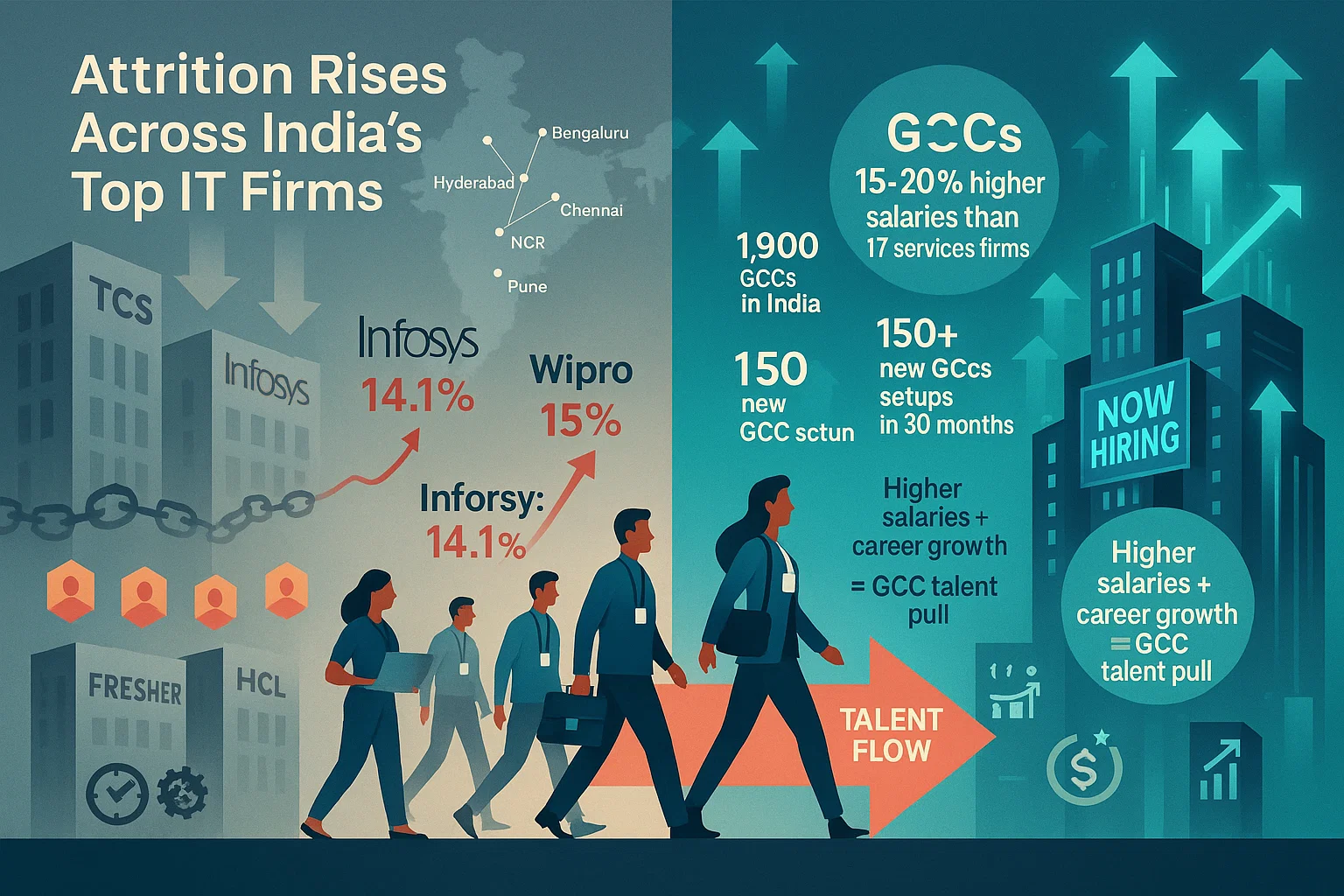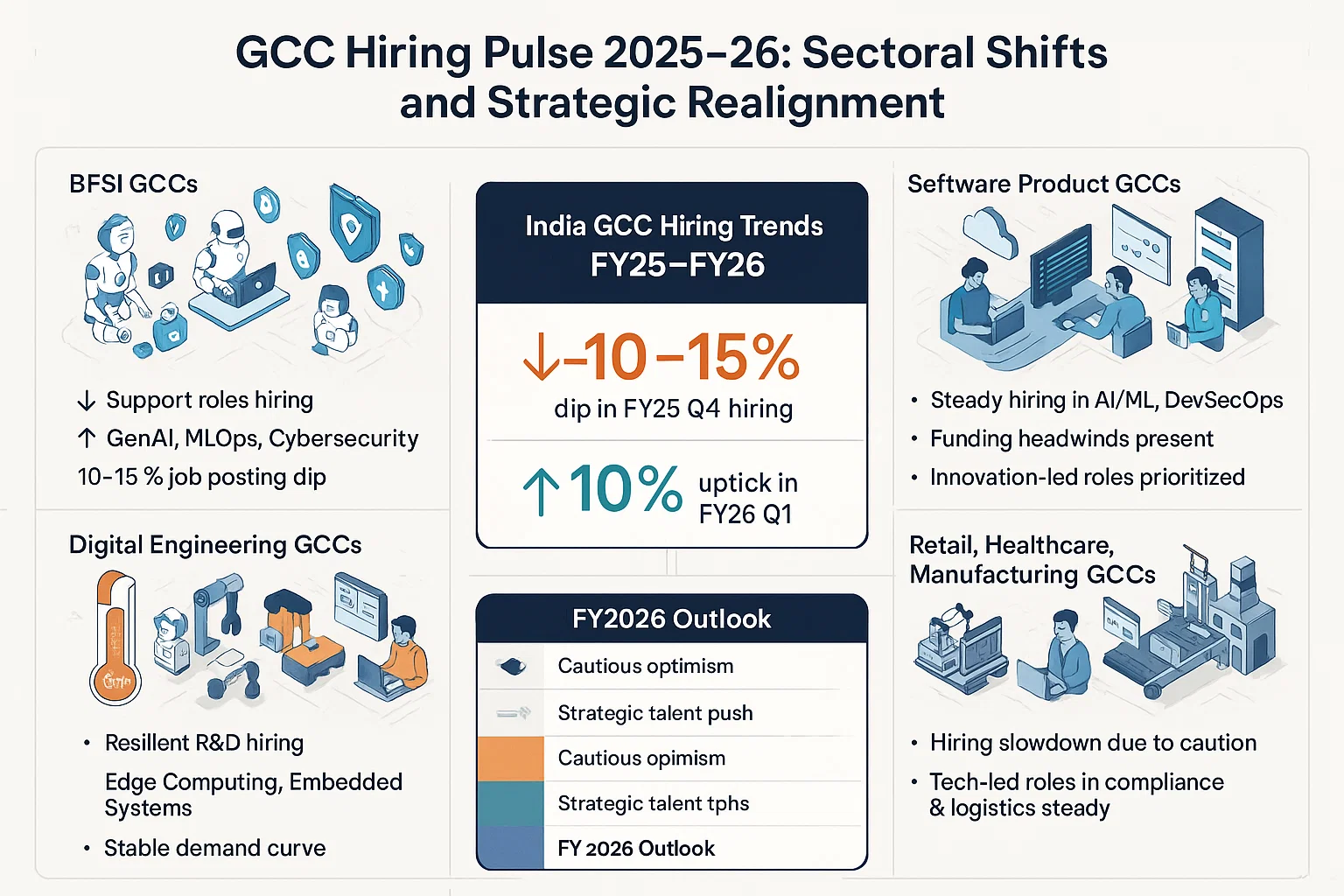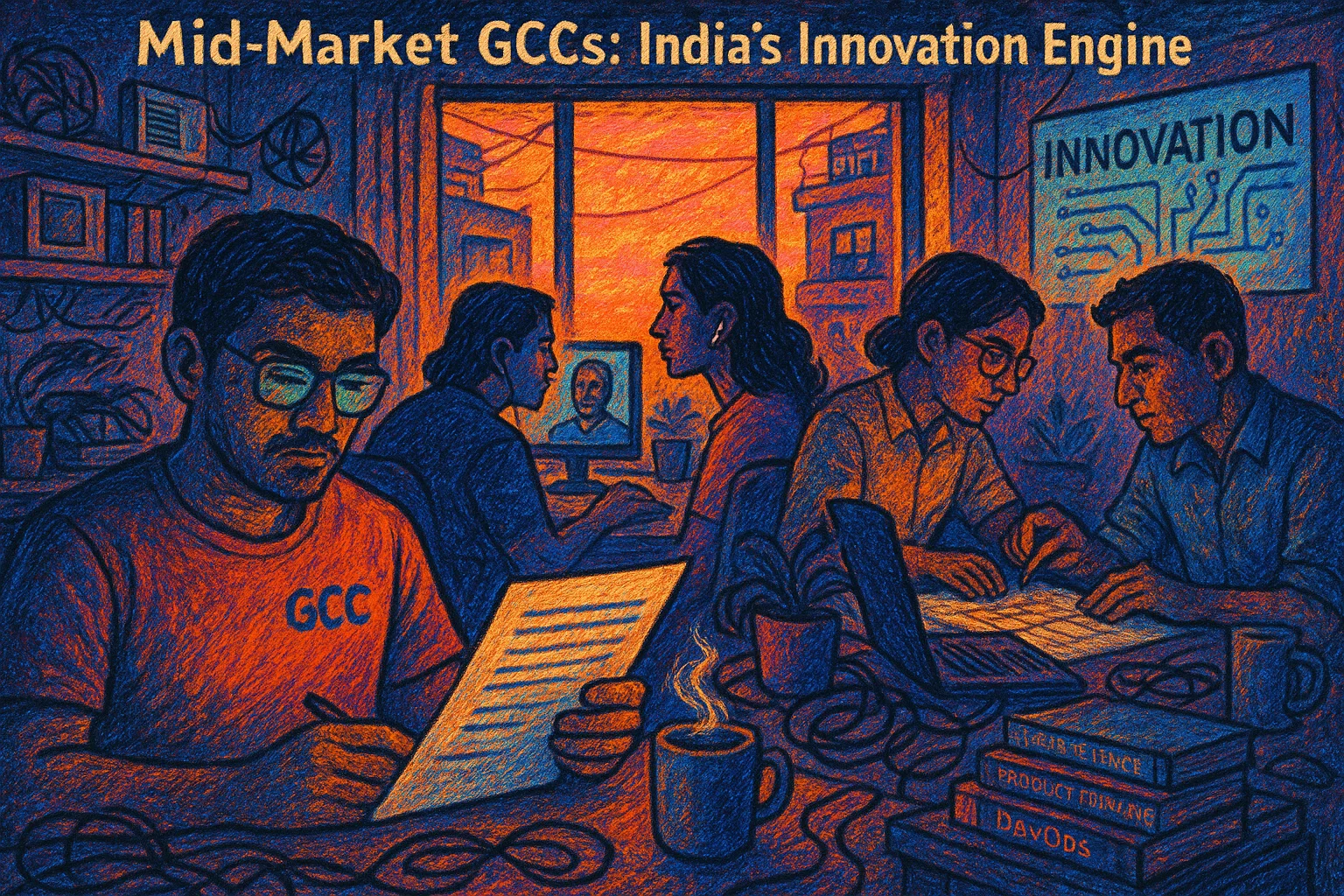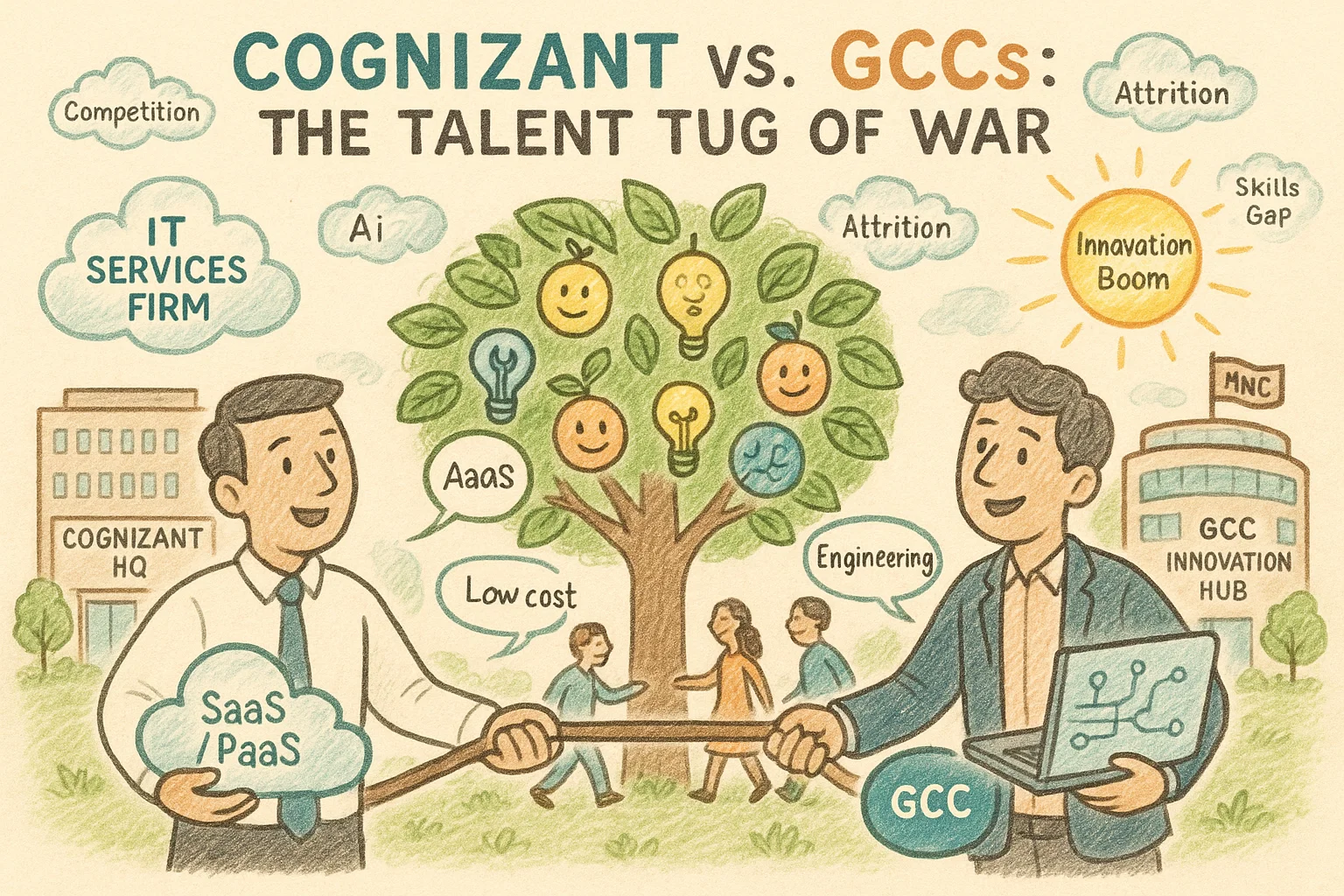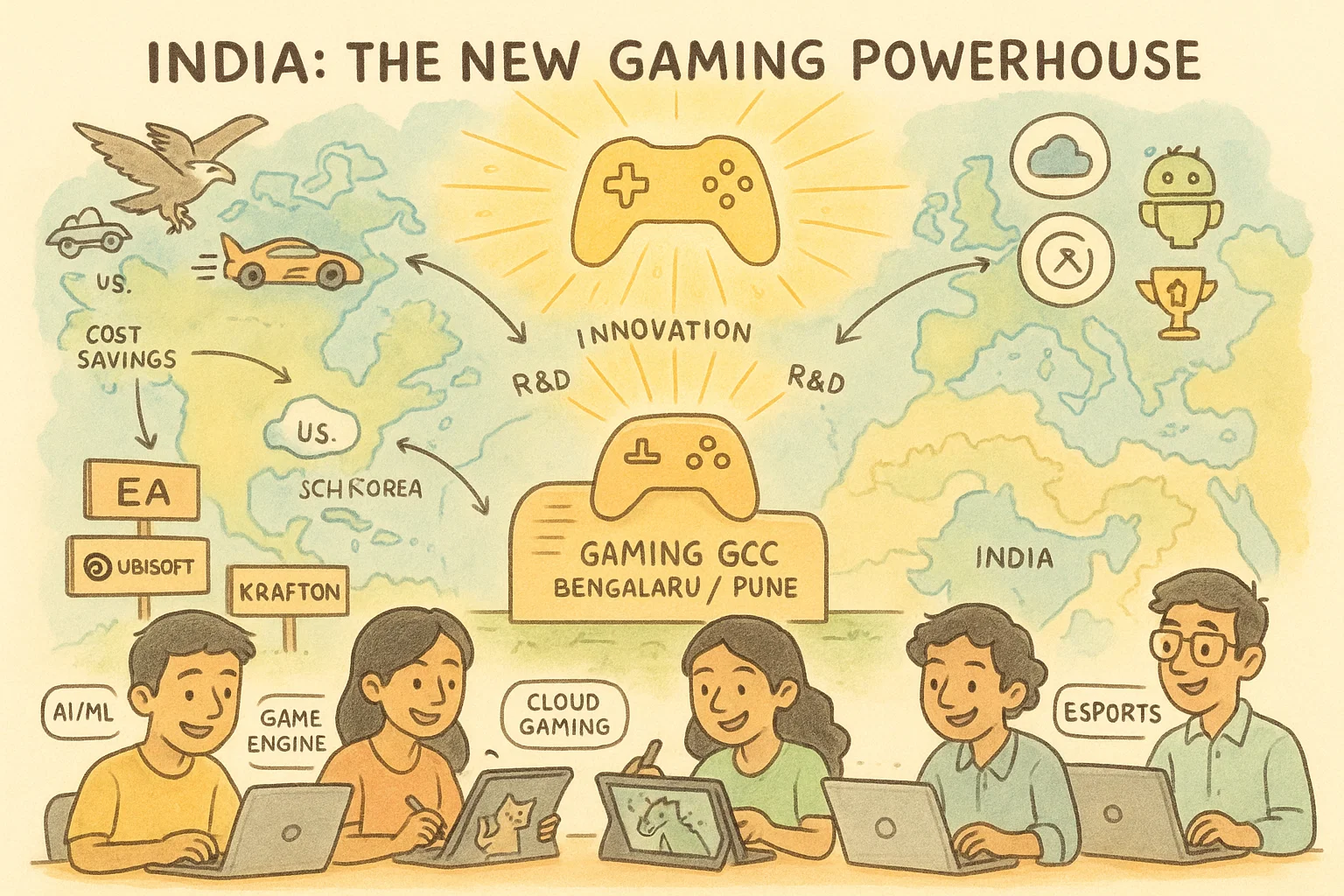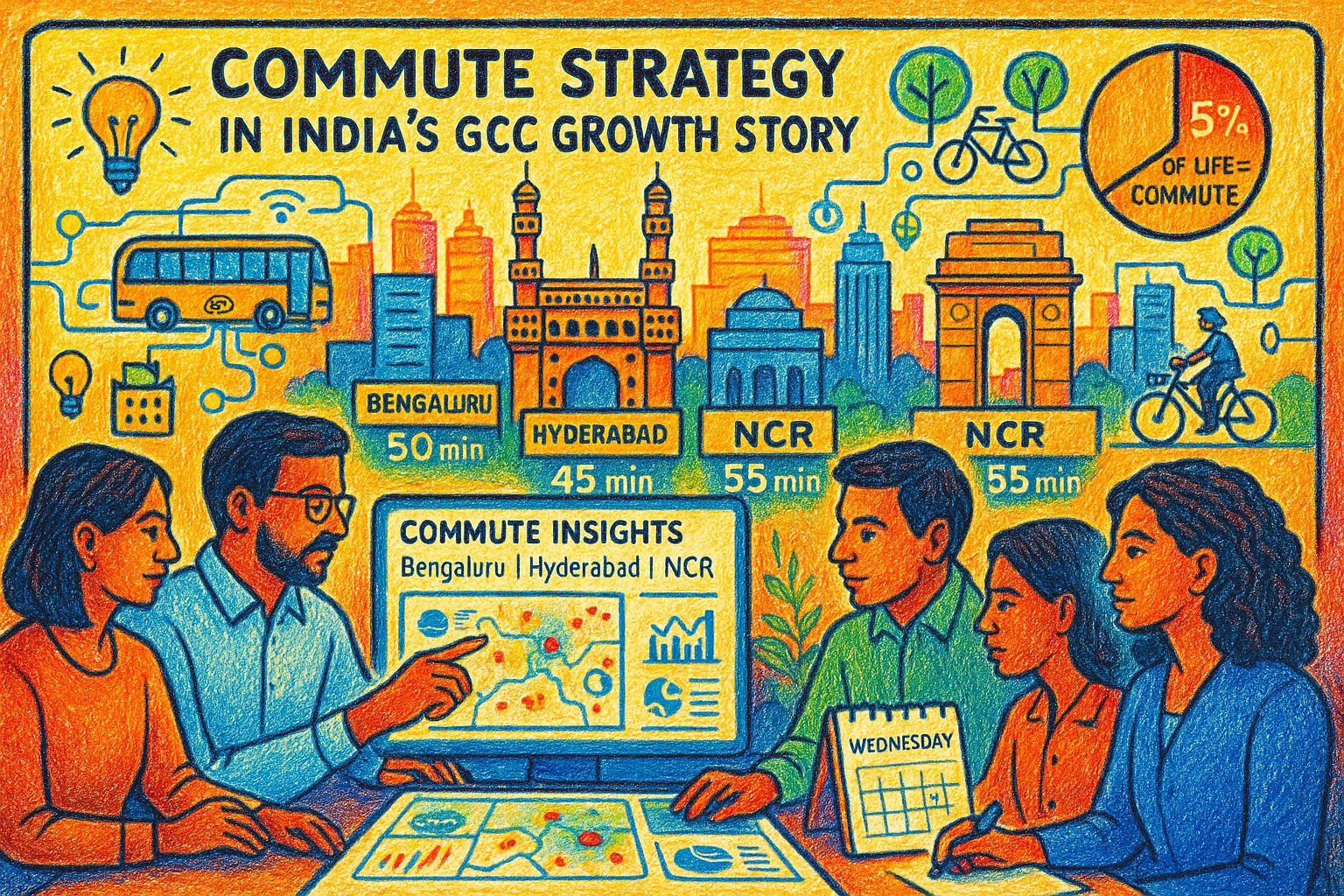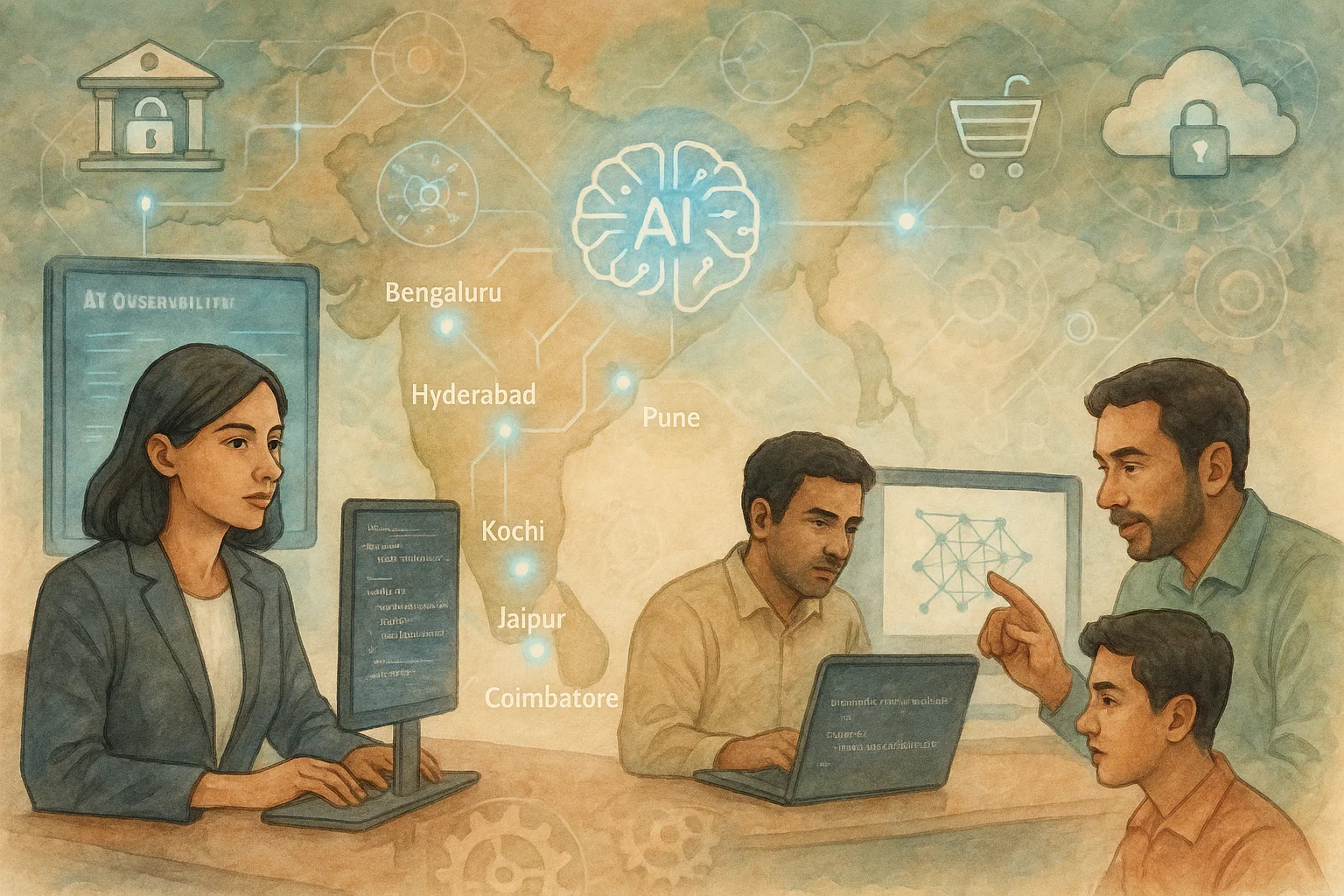GCC Hub Team
India’s top four IT companies – Tata Consultancy Services, Infosys, Wipro, and HCL Technologies – are facing a moderate increase in employee attrition in FY25, attributed to the rising competition from Global Capability Centres (GCCs) in the country.
According to a report by The Hindu Business Line, attrition rates have increased across these companies, with Infosys witnessing a rise to 14.1% and Wipro’s attrition rate reaching 15% in FY25.
Global Capability Centres are offshore centres set up by multinational companies to leverage India’s talent pool and cost advantages. These centres have been increasingly popular in India, with nearly 1,900 GCCs currently operating in the country, including around 150 new setups in the last 30 months. GCCs are known to offer higher salaries, with 15-20% more than what IT companies typically offer, making them attractive to professionals, especially those with less than five years of experience.
Attrition Impact on IT Companies
To mitigate the impact of rising attrition, IT companies are expected to hire more freshers this year. Infosys’ CFO, Jayesh Sanghrajka, noted that attrition is influenced by multiple factors, including opportunities outside the company, competition, and employees pursuing further studies. The increased competition from GCCs is putting pressure on IT companies to retain talent.
Industry Outlook
The Indian IT industry is navigating a challenging landscape, with muted revenue growth expected in FY25. According to a report by CRISIL Ratings, the top four IT companies will see 5-7% year-on-year revenue growth in FY25, marking the second successive year of muted growth. Despite these challenges, the industry is expected to inch up to 6% growth in FY25, driven by increased operating efficiencies .
Key Attrition Rates for Top IT Companies
- Tata Consultancy Services (TCS): 13.3% in FY25, up from 12.5% in FY24
- Infosys: 14.1% in FY25, up from 12.6% in FY24
- Wipro: 15% in FY25, up from 14.2% in FY24
- HCL Technologies: 13% in FY25, up from 12.4% in FY24
